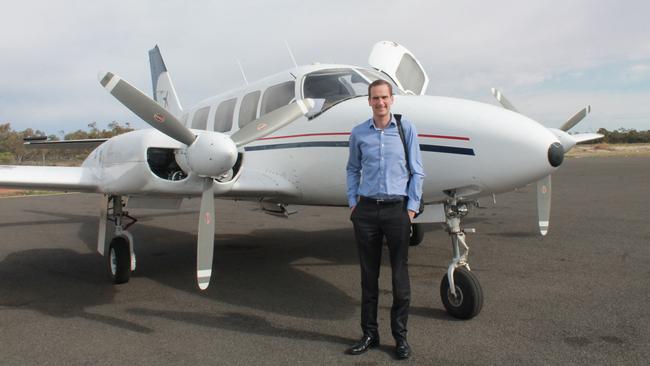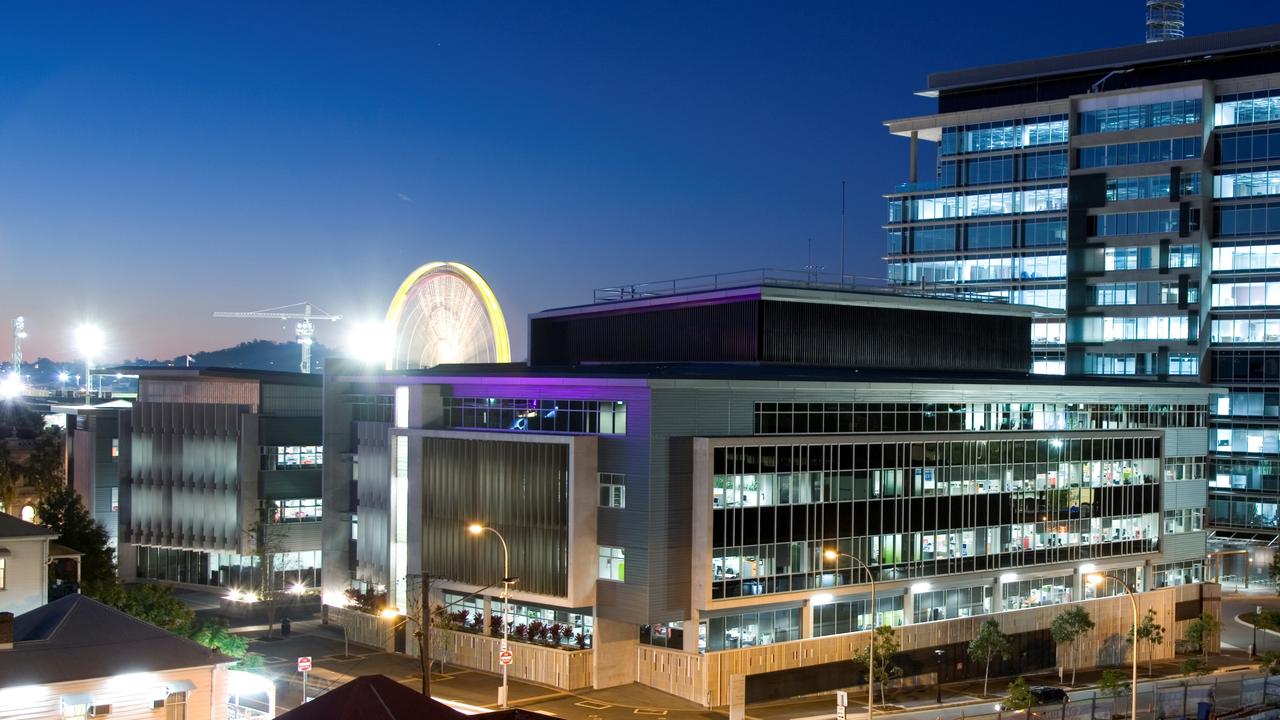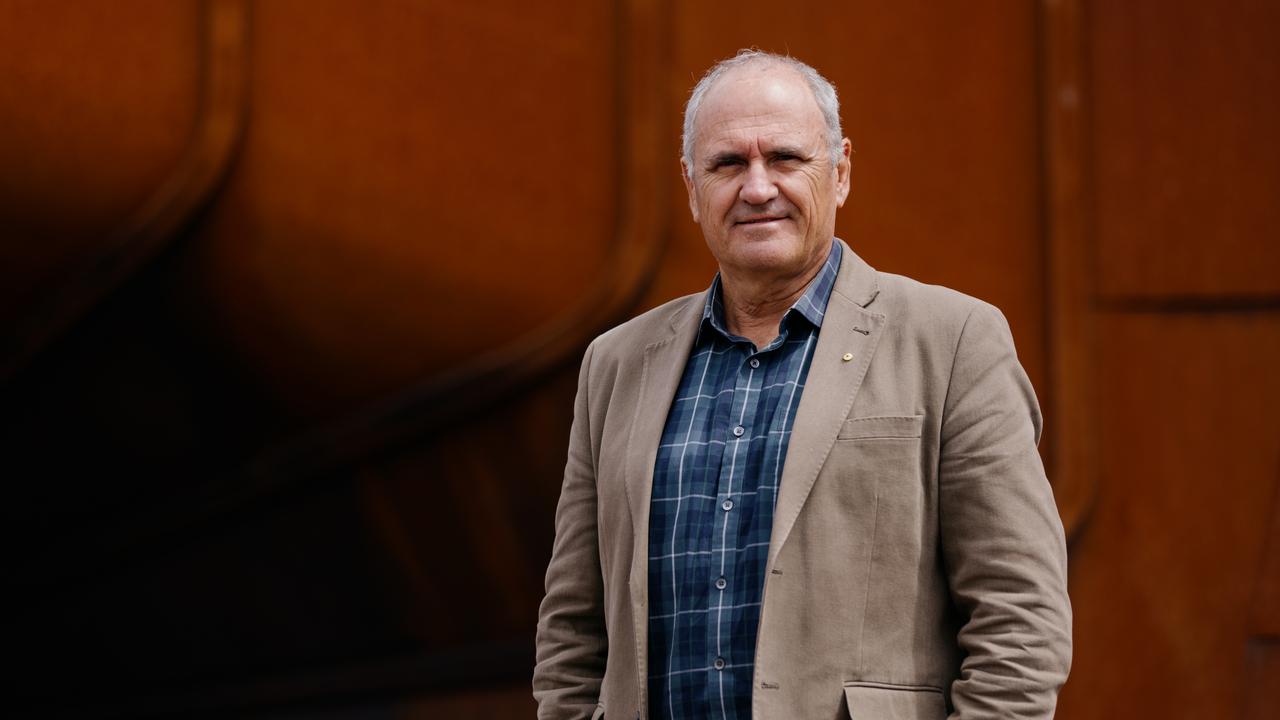Doctors loving the country life
James Collett, a specialist originally from Sydney, is looking down on the dry, empty landscape of western NSW.

It’s 7.30am on a Thursday. James Collett, a 36-year-old kidney specialist originally from Sydney, is looking down on the dry, empty landscape of western NSW from his seat at the back of a six-seater, twin-engine plane. The flight from Dubbo to Bourke is a little over an hour.
Inside the tiny airport building in Bourke, he stops to look at the photos of Fred Hollows. The pioneering eye doctor, who helped restore eyesight to thousands of disadvantaged people, is buried in town. Collett will spend the day in Bourke, at the Aboriginal medical centre, where he’ll see renal patients, many of whom have come a long way to see him. Many are indigenous and some are from 40,000ha cattle stations up near the Queensland border. It’s definitely not Sydney.
This morning, he’ll see a man in his seventies who’s travelled more than 100km to see him. They’ve got to know each other well over regular visits. The man has end-stage kidney failure, and Collett can help with his symptoms so he can remain on his property. Without Collett’s outreach work, the man might have to end his days far from home and loved ones.
“Meeting people and seeing health problems in rural and remote NSW is the most unique and exciting thing about working out here,” Collett says.
The doctors and health professionals who have traded city life for a “frontier experience” at Dubbo, in central NSW, aren’t just there for the six-bedroom house with pool on 5ha they can buy for less than $1 million. It’s about making a difference by improving and saving lives in a region where huge distances and sparse populations present a unique set of challenges.
Kate Crossley, 35, became a doctor so she could make a difference. As a neurologist working in Dubbo, she’s done just that. She says it’s one of the best decisions she’s ever made.
“If I were working in the city, I’d be one of many neurologists, and I’d probably be doing part-time work in several hospitals, with lots of private work, and it might not be rewarding,” she says. “Whereas out here, there’s a huge demand for our services and often with patients who’ve been struggling with problems for a very long time.”
Crossley has pioneered new services in the region. She set up the first fully public neurophysiology service. It’s saving patients from having to travel hundreds of kilometres, and it’s improving care for inpatients. She also runs the stroke service, so rural patients have much better access to evidence-based stroke care.
She says her work as a regional representative on health committees, state and national, wouldn’t have been possible in a large city.
“It enables me to be an advocate for my patients to get access to quality medical care,” she says. “That is so satisfying because it feels like I’m making a difference to people’s lives on a much broader scale than what I’d be able to achieve as a relatively early-career neurologist in the city.”
Colin McClintock, a 42-year-old nephrologist, moved from Sydney 10 years ago. He says he “wouldn’t give it up for the world”.
“General medicine out here isn’t like being on a general medical on-call at Hornsby hospital where the very sick often bypass with paramedics to North Shore or something like that,” he says. “Out here you can’t bypass — all roads lead to Dubbo.”
“We get to practise very exciting medicine in and around Dubbo,” he says. “But we also get to jump on planes and go to remote outreach clinics. We take trainees with us and show them the real world: people doing it tough, who genuinely, in our state, have terrible access to care.”
A significant capital injection from state and federal governments — including almost $250m to upgrade Dubbo hospital — has created new opportunities.
Florian Honeyball, a 35-year-old oncologist, has been instrumental in planning for the integrated cancer centre being built at Dubbo hospital. The new centre will mean that most cancers can be diagnosed and treated locally, saving patients a lengthy trip to Sydney.
“The dream will become a reality in 2021,” he says. “We’re doing the detailed design at the moment. Then we’ll have radiation, oncology, a PET scanner and clinical trials in our town where we had practically nothing five years ago.”
Honeyball says the greatest attraction for him professionally has been the opportunity to pioneer a new service. But he also loves the lifestyle.
“I thought I was going to turn up in this town where there was a main street, and saloon doors which flipped open backwards and forwards, with tumbleweeds rolling down the street,” he says. “But I can actually remember being pleasantly surprised that it was a sophisticated city. I noticed it being very clean and friendly.”
In terms of lifestyle, it’s the simplicity outside of a big city that many of the doctors enjoy most.
“Everything is easier — travel time, making friends, joining groups, community spirit, all that stuff is easier and simpler,” says Collett.
“You’ve got the advantage that Dubbo is so well serviced with flights to Sydney. If there is anything you miss you can get back without all the baggage of the complexity of life in Sydney.”
Dubbo Health Service general manager Debra Bickerton says “when people think of Dubbo, they think of the zoo”.
“There’s a perception that it’s career limiting or career suicide for people to come outside of a big tertiary centre,” she says. “But you can stay in a large tertiary centre, and you’re basically a little fish in a big pond, or you can go out to these places and become a very big fish in a smaller pond.
“Dubbo hospital has led the way for the state in telehealth models of care, outreach, renal medicine, oncology, and it’s new consultants doing it. They would never get to do that in Sydney.”
There’s always a need to get doctors out to the country, both GPs and in hospital medicine and surgery, says McClintock.
“We’ve got a critical mass and a conveyor belt of young, committed, highly trained, outstanding specialists who want to come and make a difference where the access to care remains poor,” he says.
Specifically, there’s an urgent need for emergency department specialists, anaesthetists, nurses and midwives, says Bickerton.
Collett, who’s now been in Dubbo for 18 months, says it’s given his career a huge boost.
“You get a lot more responsibility much earlier in your career,” he says. “In Sydney, you’re a cog in a big machine.”



To join the conversation, please log in. Don't have an account? Register
Join the conversation, you are commenting as Logout